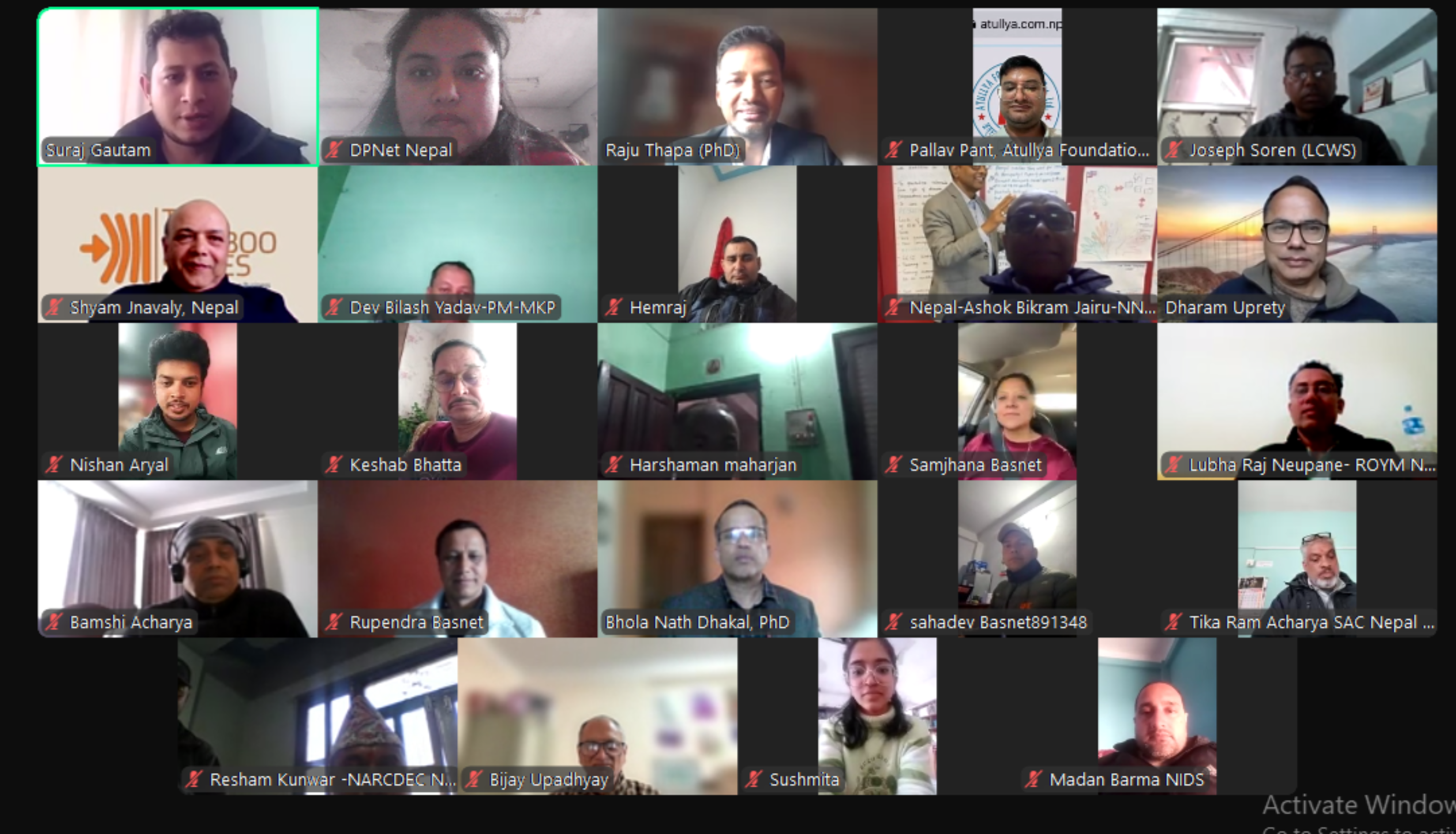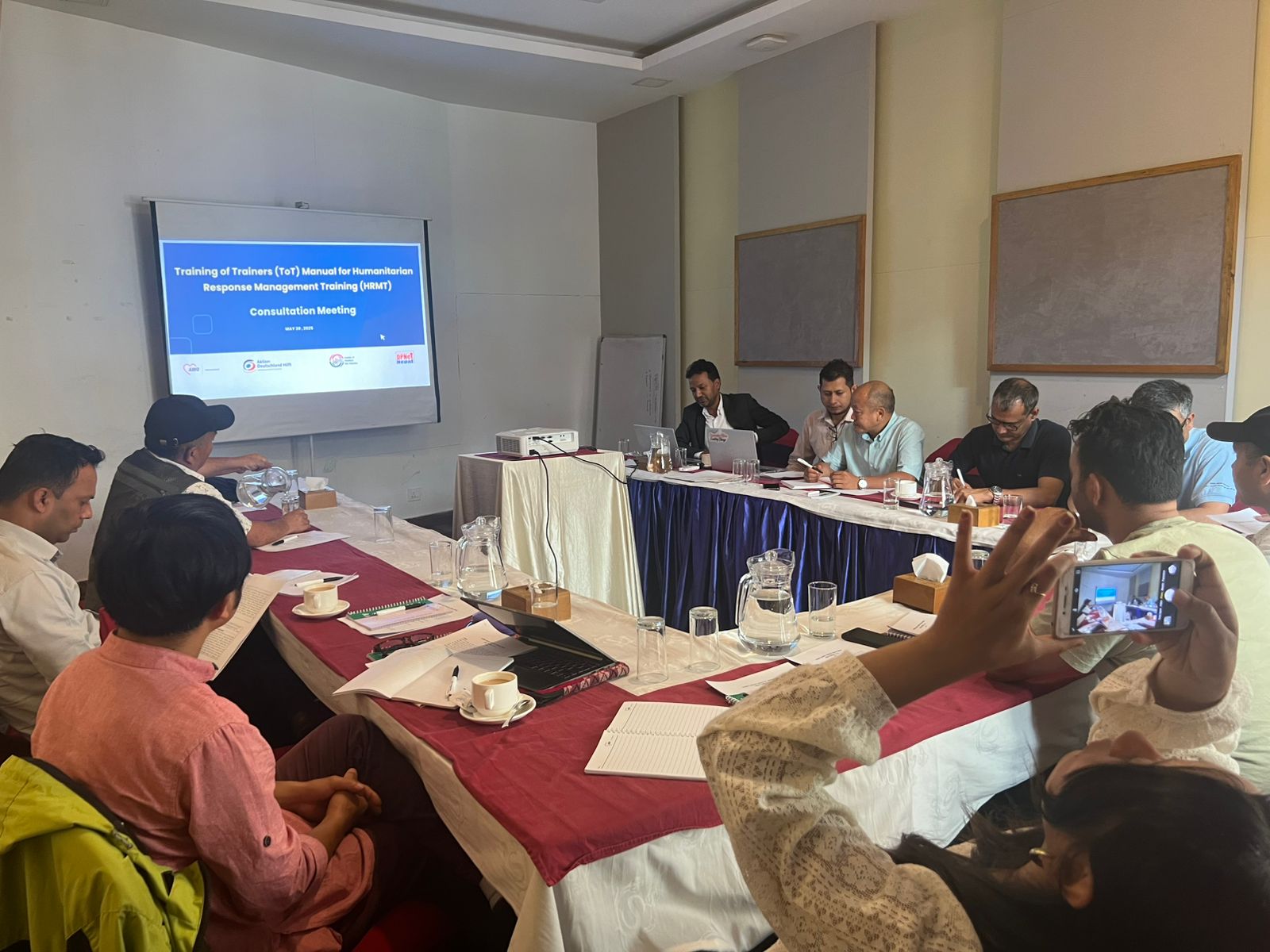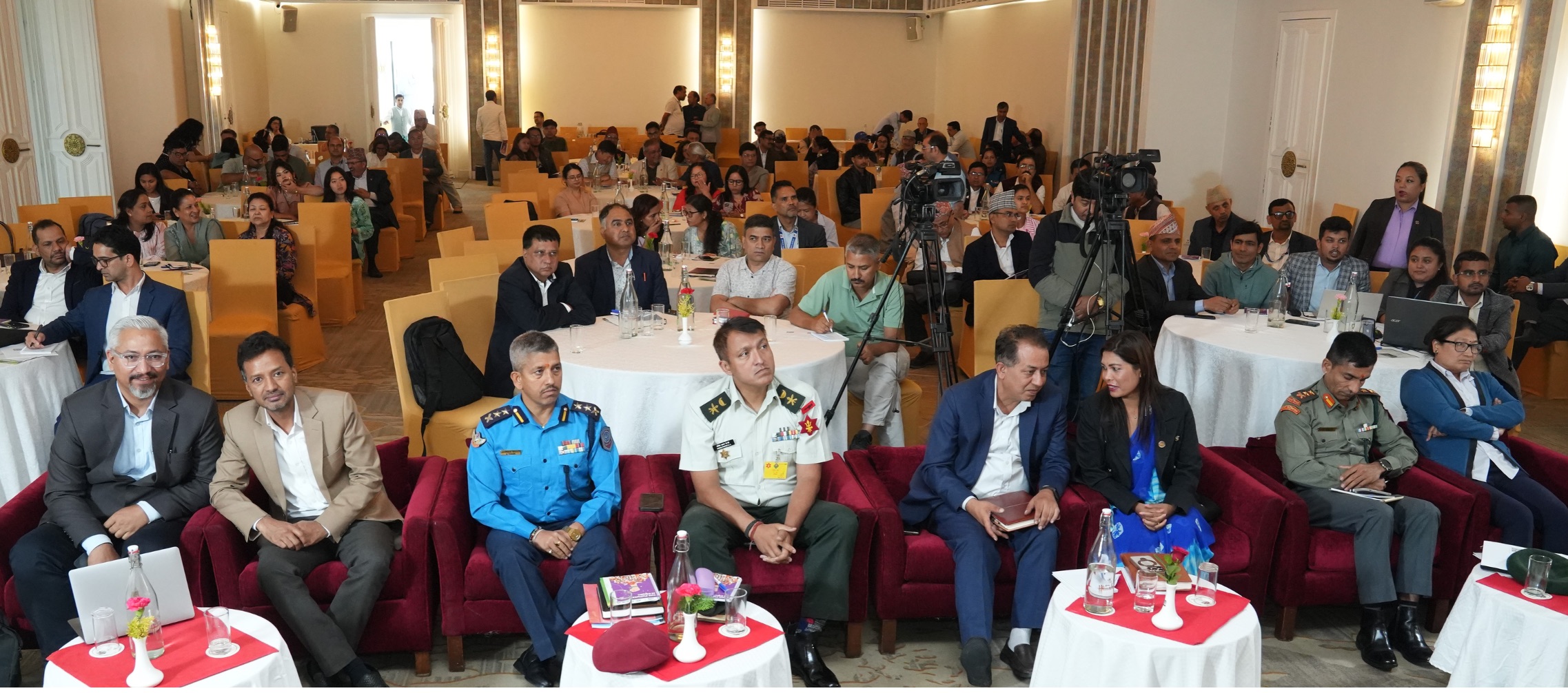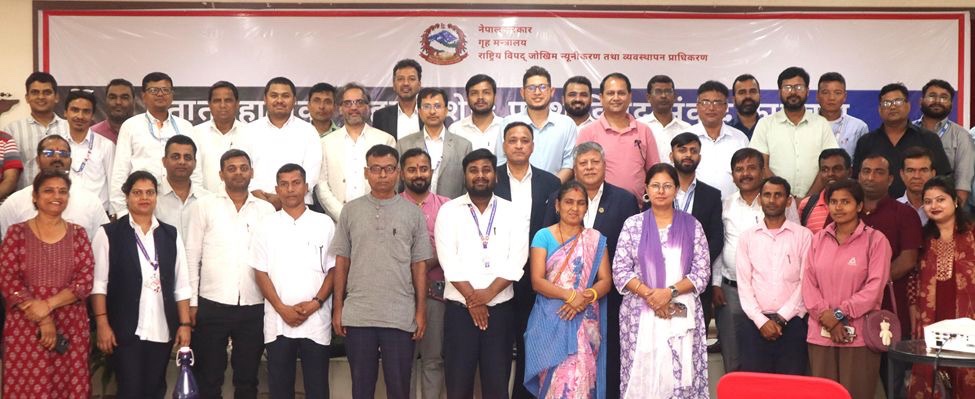DPNet Nepal Hosts Preparatory Meeting for GP2025 Participation

Kathmandu, February 9, 2025, In preparation for Nepal’s participation in the upcoming Global Platform for Disaster Risk Reduction 2025 (GP2025), DPNet Nepal organized a virtual preparatory meeting to discuss Nepal’s collective engagement strategy and coordination mechanisms. The meeting was chaired by Dr. Bhisma Bhusal, Executive Chief of the National Disaster Risk Reduction and Management Authority (NDRRMA) and Chair of the National Platform for Disaster Risk Reduction (NPDRR). The session brought together key stakeholders, including representatives from government agencies, INGOs, NGOs, and DRR practitioners.
The meeting began with opening remarks by DPNet General Secretary, Suraj Gautam, who welcomed the participants and highlighted the objectives of the gathering. He emphasized that Nepal has a strong tradition of participating in global DRR platforms with a unified way and the meeting was important step in ensuring well-prepared and coordinated representation at GP2025. He stressed that DPNet, as the secretariat of NPDRR, is committed to facilitating effective collaboration among stakeholders to enhance Nepal’s presence at international forums.
Following the introductory remarks, Dr. Raju Thapa, DPNet Chair and Member Secretary of NPDRR presented an overview of GP2025, outlining its significance as a global multi-stakeholder forum that reviews progress on the Sendai Framework and fosters discussions on disaster risk reduction. He provided a detailed breakdown of the event’s key segments, including the preparatory days, thematic sessions, high-level dialogues, and multi-stakeholder plenaries. He also explained the informal engagements, awards, and side events that would take place during the conference. Dr. Thapa elaborated on Nepal’s planned participation, emphasizing the importance of attending main sessions and engaging in sideline events. While acknowledging that applications for partner events, learning labs had closed, he requested stakeholders to ensure that Nepal’s voice is well-represented in thematic discussions and policy dialogues. He also highlighted the significance of preparing a common position paper and official statement, which have been instrumental in articulating Nepal’s DRR priorities in previous international forums. Additionally, Dr. Thapa spoke about the Sasakawa Award, which recognizes individuals and organizations making outstanding contributions to disaster resilience. He encouraged stakeholders to submit nominations for Nepali DRR champions who have demonstrated exceptional commitment to strengthening community resilience. He also reminded participants about key deadlines, including the nomination deadline on March 28, 2025.
During the open discussion session, participants raised concerns about ensuring effective coordination among stakeholders for meaningful engagement at GP2025. Attendees emphasized the need to reflect on past experiences to improve Nepal’s representation, particularly in terms of consolidating inputs from diverse stakeholders and presenting a unified stance. Others highlighted logistical and financial challenges associated with participation and stressed the importance of resource mobilization to support Nepal’s delegation.
In his concluding remarks, Dr. Bhusal acknowledged Nepal’s history of disciplined and impactful participation in global DRR platforms. He stated that despite challenges, Nepal has consistently presented itself as a committed and proactive nation in the field of disaster risk reduction. He commended the dedication of stakeholders who have worked tirelessly to enhance Nepal’s global visibility in DRR discussions. Dr. Bhusal requested DPNet to recommend a GPDRR Participation Preparatory Committee. He emphasized that the importance of good official statement and position paper as these documents reflect Nepal’s key priorities, challenges, and achievements in disaster risk reduction. He also encouraged stakeholders to think collectively about nominating outstanding DRR champions for the Sasakawa Award, as their contributions could serve as a global inspiration for disaster resilience efforts. Furthermore, Dr. Bhusal highlighted the need for a basket fund to facilitate Nepal’s meaningful participation in GP2025. He announced that NDRRMA would take the initiative by sending an official request letter to relevant agencies, requesting them to contribute to the fund. He emphasized that financial preparedness is essential to ensure that Nepal’s delegation can actively engage in the conference and represent the country effectively on the global stage and closed the program formally.











